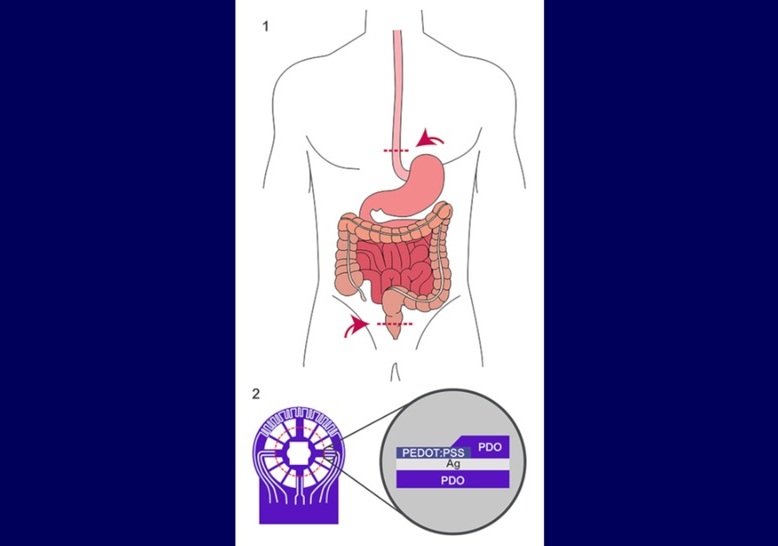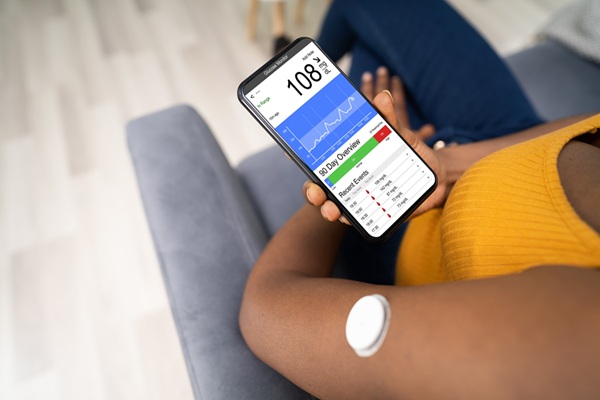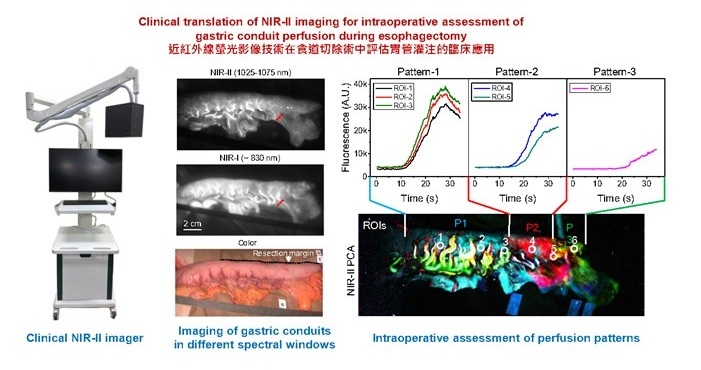Prescribed Blood Thinners for COVID-19 Patients Lower Hospitalizations and Reduce Mortality by Almost Half
|
By HospiMedica International staff writers Posted on 07 Oct 2021 |

A study has found that having a protocol to use blood thinners for COVID-19 patients reduces patient mortality by almost half.
To find ways to decrease clotting related to COVID-19, researchers from the University of Minnesota (Minneapolis, MN, USA) Basel University (Basel, Switzerland) looked at reducing hospitalizations by using prescribed blood thinners. Many individuals with COVID-19 develop abnormal blood clots from high inflammation, which can lead to serious health complications and mortality.
The study found that patients on blood thinners before having COVID-19 were admitted less often to the hospital, despite being older and having more chronic medical conditions than their peers. The findings revealed that blood thinners - regardless of if they are being used before being infected with COVID-19 or started when admitted to the hospital for treatment of COVID-19 - reduced deaths by almost half. The study also found that hospitalized COVID-19 patients benefitted from blood thinners regardless of the type or dose of the medication used.
Researchers note that the next steps for this work is to ensure that the results of this study are consistent and not isolated to the health care systems in advanced countries - like the US and Switzerland - or in certain populations, like Caucasians. They are currently working with research groups in other parts of the world, like Egypt, to look at how blood thinners impact patients in less-invested health care systems and in different patient populations.
“We know that COVID-19 causes blood clots that can kill patients,” said Sameh Hozayen, MD, MSC, an assistant professor of medicine at the U of M Medical School. “But, do blood thinners save lives in COVID-19? Blood thinners are medications prescribed to prevent blood clots in patients with a prior blood clot in their lungs or legs. They also prevent blood clots in the brain secondary to abnormal heart rhythms, like atrial fibrillation. Blood thinners are the standard of treatment in these diseases, which is why we looked at data to see if it impacted hospitalizations related to COVID-19.”
“Unfortunately, about half of patients who are being prescribed blood thinners for blood clots in their legs, lungs, abnormal heart rhythms or other reasons, do not take them. By increasing adherence for people already prescribed blood thinners, we can potentially reduce the bad effects of COVID-19,” Hozayen said.
Related Links:
University of Minnesota
Basel University
Latest COVID-19 News
- Low-Cost System Detects SARS-CoV-2 Virus in Hospital Air Using High-Tech Bubbles
- World's First Inhalable COVID-19 Vaccine Approved in China
- COVID-19 Vaccine Patch Fights SARS-CoV-2 Variants Better than Needles
- Blood Viscosity Testing Can Predict Risk of Death in Hospitalized COVID-19 Patients
- ‘Covid Computer’ Uses AI to Detect COVID-19 from Chest CT Scans
- MRI Lung-Imaging Technique Shows Cause of Long-COVID Symptoms
- Chest CT Scans of COVID-19 Patients Could Help Distinguish Between SARS-CoV-2 Variants
- Specialized MRI Detects Lung Abnormalities in Non-Hospitalized Long COVID Patients
- AI Algorithm Identifies Hospitalized Patients at Highest Risk of Dying From COVID-19
- Sweat Sensor Detects Key Biomarkers That Provide Early Warning of COVID-19 and Flu
- Study Assesses Impact of COVID-19 on Ventilation/Perfusion Scintigraphy
- CT Imaging Study Finds Vaccination Reduces Risk of COVID-19 Associated Pulmonary Embolism
- Third Day in Hospital a ‘Tipping Point’ in Severity of COVID-19 Pneumonia
- Longer Interval Between COVID-19 Vaccines Generates Up to Nine Times as Many Antibodies
- AI Model for Monitoring COVID-19 Predicts Mortality Within First 30 Days of Admission
- AI Predicts COVID Prognosis at Near-Expert Level Based Off CT Scans
Channels
Critical Care
view channel_1.jpg)
Soft “Cyborg” Cardiac Patches Improve Stem Cell Heart Repair
Heart muscle cells grown from patient stem cells offer a promising way to repair damage caused by heart attacks and heart failure. However, once transplanted, these cells often struggle to synchronize... Read more
Soft Wearable System Offers Continuous Wireless Monitoring of Neonatal Health
Newborn mortality remains stubbornly high in many low-resource settings, largely due to delayed detection of abnormal vital signs and limited clinical staffing. Traditional monitoring relies on intermittent... Read moreSurgical Techniques
view channel
Implantable Absorbable Sensor Detects Life-Threatening Complications After Intestinal Surgery
Intestinal anastomoses are among the riskiest procedures in abdominal surgery, with complications such as circulatory disorders or immune reactions often developing rapidly and unpredictably.... Read more
New Study Findings Enable Improved Ventilation During Complex Lung Surgery
Major lung surgery requires temporary collapse of one lung while the other is mechanically ventilated, a process that increases strain on the functioning lung and raises the risk of complications such... Read morePatient Care
view channel
Revolutionary Automatic IV-Line Flushing Device to Enhance Infusion Care
More than 80% of in-hospital patients receive intravenous (IV) therapy. Every dose of IV medicine delivered in a small volume (<250 mL) infusion bag should be followed by subsequent flushing to ensure... Read more
VR Training Tool Combats Contamination of Portable Medical Equipment
Healthcare-associated infections (HAIs) impact one in every 31 patients, cause nearly 100,000 deaths each year, and cost USD 28.4 billion in direct medical expenses. Notably, up to 75% of these infections... Read more
Portable Biosensor Platform to Reduce Hospital-Acquired Infections
Approximately 4 million patients in the European Union acquire healthcare-associated infections (HAIs) or nosocomial infections each year, with around 37,000 deaths directly resulting from these infections,... Read moreFirst-Of-Its-Kind Portable Germicidal Light Technology Disinfects High-Touch Clinical Surfaces in Seconds
Reducing healthcare-acquired infections (HAIs) remains a pressing issue within global healthcare systems. In the United States alone, 1.7 million patients contract HAIs annually, leading to approximately... Read moreHealth IT
view channel
EMR-Based Tool Predicts Graft Failure After Kidney Transplant
Kidney transplantation offers patients with end-stage kidney disease longer survival and better quality of life than dialysis, yet graft failure remains a major challenge. Although a successful transplant... Read more
Printable Molecule-Selective Nanoparticles Enable Mass Production of Wearable Biosensors
The future of medicine is likely to focus on the personalization of healthcare—understanding exactly what an individual requires and delivering the appropriate combination of nutrients, metabolites, and... Read moreBusiness
view channel
Philips and Masimo Partner to Advance Patient Monitoring Measurement Technologies
Royal Philips (Amsterdam, Netherlands) and Masimo (Irvine, California, USA) have renewed their multi-year strategic collaboration, combining Philips’ expertise in patient monitoring with Masimo’s noninvasive... Read more
B. Braun Acquires Digital Microsurgery Company True Digital Surgery
The high-end microsurgery market in neurosurgery, spine, and ENT is undergoing a significant transformation. Traditional analog microscopes are giving way to digital exoscopes, which provide improved visualization,... Read more
CMEF 2025 to Promote Holistic and High-Quality Development of Medical and Health Industry
The 92nd China International Medical Equipment Fair (CMEF 2025) Autumn Exhibition is scheduled to be held from September 26 to 29 at the China Import and Export Fair Complex (Canton Fair Complex) in Guangzhou.... Read more


















